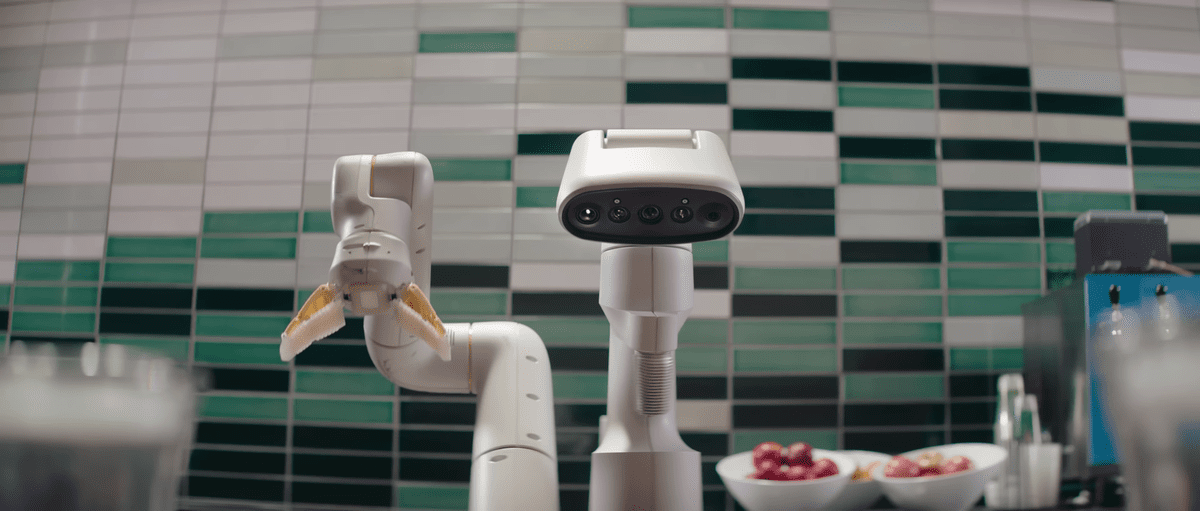The AIs of 2023 already outdated? In any case, Google is already working on a new way to exploit them in the future. RT-2 is the new technology being tested by the American company, and it may be implemented in the field of robotics.
Robotics Transformers (RT-2) aims to be a revolution in integrating AI models such as Bard into robots. The idea behind this project is to allow machines to learn complex tasks faster. These will then use cutting-edge artificial intelligence models that will enable them to strengthen their comprehension and execution capacities.
RT-2, a real “Robolution”?
When you have to throw waste in the trash, for example, there is nothing simpler for you. It is a natural, automatic gesture, resulting from a long process of education and psychological conditioning combined with a series of physical movements. To teach this to a robot, the task is much more complex. This generally involves a set of instructions and a pre-established programming algorithm. If we take the example of the waste, the instructions could be these:
- Travel planning;
- Waste detection;
- Location of the trash can;
- Programming the gripping action;
- Programming the movement to throw away the waste;
- Management of potential errors.
The advantage that AI can represent in robotics would allow an easier approach to learning. Google, with its RT-2 technology, therefore allows machines to enter a conditioning process based on diversified sources of knowledge: texts, images or sounds for example.
More efficient and more human robots
If generative AI models already show rather impressive results through chatbots, this is not yet the case for robots. A chatbot only needs to integrate an immense amount of data to then produce text; the robot must understand and analyze the physical world and adapt its behavior.
If, in the future, robots manage to function by relying on AI, their development would be facilitated and the various fields in which they could intervene would expand. The RT-2 innovation imagined by Google would allow these inanimate beings to acquire rudimentary reasoning capacities, thus facilitating their exchanges with humans and their environment.
For the moment, Google has not revealed any marketing plan for robots equipped with RT-2 technology. If the American firm continues its efforts in this direction, the prospects for application are promising: industrial production, logistics, domestic assistance or the health sector. What is certain, however, is that the robotics market is booming. It currently represents 30 billion dollars and could reach 60 billion in 2030 according to Grand View Research.
Sources: CNET, DevX

0